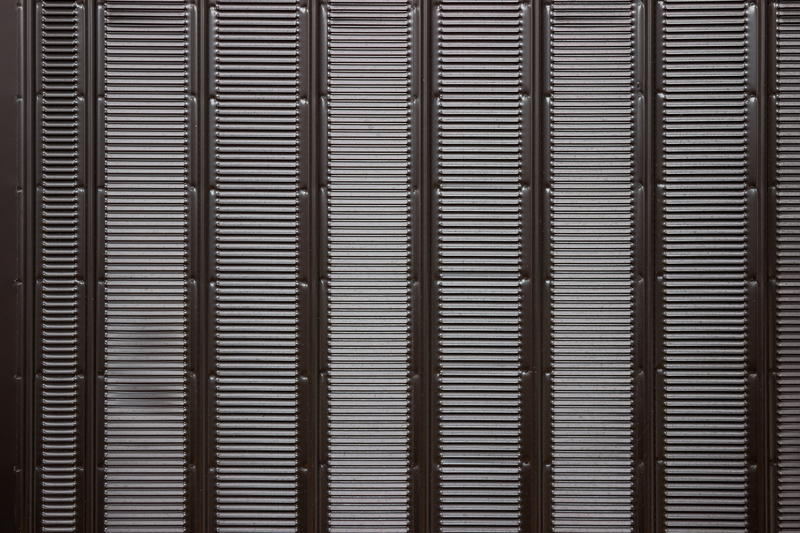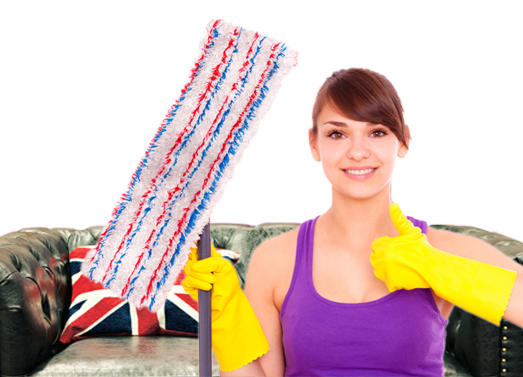Discover Sparkling Jewellery Cleaning Techniques
Posted on 05/09/2025
Discover Sparkling Jewellery Cleaning Techniques
Are your precious jewels starting to lose their shine? Over time, dirt, oils, lotions, and daily wear can dull the brilliance of even the finest pieces. Luckily, there are a variety of jewellery cleaning techniques that can help restore your treasures to their former sparkling glory. In this comprehensive guide, we'll walk you through some of the most effective, safe, and professional methods to ensure your beloved jewellery always looks its best.

Why Clean Your Jewellery Regularly?
Regular cleaning is essential for maintaining the lustre and beauty of your jewellery. Not only does it keep your pieces looking gorgeous, but it also removes potentially harmful build-up that could cause long-term damage.
- Preserves Brilliance: Cleaning removes grime and tarnish, preventing dullness.
- Extends Lifespan: Proper care can prevent permanent staining or scratching.
- Reduces Allergies: Eliminates irritants that accumulate in crevices, protecting sensitive skin.
- Showcases Beauty: Clean settings allow the true sparkle of gemstones and metals to shine through.
Let's dive into the best practices for sparkling jewellery cleaning techniques and restore the gleam to your favourite pieces!
Understanding Your Jewellery: Know Before You Clean
Before jumping into any jewellery cleaning methods, it's critical to understand the composition of your jewellery. Different metals and gemstones require tailored care to avoid accidental damage. Always check whether your items are:
- Gold, silver, platinum, or another metal?
- Set with diamonds or softer stones like opals, pearls, or emeralds?
- Held together with glue, or tightly prong-set?
- Containing antique or delicate designs?
If in doubt, consult with a jeweller before starting your cleaning routine. Now, let's explore the most effective jewellery cleaning tips and techniques.
1. Gentle DIY Jewellery Cleaning Methods
Warm Water & Mild Soap - The Universal Technique
For general maintenance, most jewellery (excluding porous stones and delicate antique pieces) can be brightened up with these simple steps:
- Mix a solution: Combine warm water and a few drops of mild, non-detergent dish soap in a bowl.
- Soak: Place your jewellery in the solution for 10-20 minutes. This helps to loosen any surface dirt.
- Brush gently: Use a soft-bristled toothbrush to clean hard-to-reach nooks and crannies.
- Rinse & dry: Run under lukewarm water and pat dry with a soft, lint-free cloth.
This technique is safe for: Diamonds, gold, platinum, sapphires, and most durable gemstones.
Sparkling Silver Jewellery Cleaning Techniques
Silver jewellery is prone to tarnishing due to exposure to sulphur and oxygen. Try this at-home method:
- Aluminium foil & baking soda: Line a bowl with foil, add hot water, 1 tablespoon of baking soda, and your silver.
- Reaction: A chemical reaction will lift off tarnish onto the foil, restoring shine.
- Buff: Rinse and polish with a silver cloth for maximum brilliance.
Note: Avoid using abrasive substances or cleaning pastes on plated or antique items.
2. Professional Jewellery Cleaning Techniques
Ultrasonic Cleaners - High-Tech Brilliance
These devices use high-frequency sound waves to dislodge dirt and grime. They're quick, effective, and widely available in jewellery stores:
- Best for intricate, sturdy jewellery, such as diamonds and gold.
- Not recommended for porous, soft, or glued-in stones (pearls, opals, turquoise, costume jewellery).
Tip: Always follow manufacturer instructions or have your items cleaned by a professional if you're unsure.
Steam Cleaning - Pure Power
Professional jewellers often use pressurized steam to safely blast residue away from precious metals and durable stones. This method:
- Removes microscopic dirt invisible to the naked eye.
- Revives the brilliance and sparkle of gems and settings.
- Should not be used on sensitive or fracture-filled stones.
Interested in DIY steam cleaning at home? Compact steamers are available for purchase but always double-check your jewellery's suitability first!
3. Special Care: Cleaning Delicate and Antique Pieces
How to Clean Pearls, Opals, Amber, and Other Sensitive Gems
Many organic and soft gemstones require special jewellery cleaning techniques. Here are golden rules for cleaning these fragile treasures:
- Pearls & Opals: Wipe with a slightly damp, soft cloth. Avoid soaking, steam, chemicals, or ultrasonic cleaners.
- Emeralds, Turquoise, and Amber: Use a moist cloth only. Avoid soap, all solvents & chemical dips, which can damage porous stones.
- Antique Jewellery: Avoid soaking; use dry brushing with a makeup or artist brush, and consult a professional for deep cleaning.
Pro Tip: Always remove jewellery before pools, hot tubs, or using hair/beauty products, as chemicals can degrade sensitive materials.
DIY Sparkling Jewellery Cleaning Formulas
While shop-bought solutions are available, many prefer homemade jewellery cleaning techniques that use household ingredients. Here are a couple of trusted recipes:
Baking Soda Paste for Gold & Silver
- Make a paste using 1 part baking soda and 1 part water.
- Apply with a soft brush, gently rub, then rinse and dry.
Vinegar Soak for Silver
- Combine 1/2 cup white vinegar with 2 tablespoons baking soda.
- Sit silver in the solution for 2-3 hours, then rinse & buff.
Warning: Never use vinegar or baking soda on soft stones and pearls! They may etch or erode the surface.
4. Quick Jewellery Care Tips for Lasting Sparkle
- Store separately in fabric-lined boxes or pouches to prevent scratches.
- Remove rings when gardening, exercising, or using household cleaners.
- Polish regularly with a jewellery cleaning cloth to prevent oxidation.
- Schedule professional check-ups: Yearly assessments to tighten prongs and review settings keep gems safe.
DIY vs Professional Jewellery Cleaning - Which to Choose?
When contemplating the best jewellery cleaning techniques for your collection, consider these key factors:
DIY Methods:- Cost-effective and convenient for regular maintenance.
- Great for robust, unembellished pieces like plain gold, platinum, and diamonds.
- Risk of damage if applied to sensitive jewellery - always double-check recommendations.
- Uses industry-grade tools like ultrasounds and pressurised steam.
- Expert inspection identifies minor repairs and prevents loss of valuable stones.
- Recommended for antique, intricately-set, or high-value pieces at least once a year.
Myths & Mistakes: What to Avoid in Jewellery Cleaning
Common Misconceptions
- Toothpaste is safe for jewellery: MYTH! Toothpaste is abrasive and can scratch metals and stones.
- All gems can be cleaned together: FALSE! Some stones will scratch or stain others if stored or cleaned together.
- Soaking is always beneficial: Not for porous or glued items; this can weaken settings or damage stones.
- All commercial dips work for everything: Many products are designed for specific metals - always read the label and consult if unsure.
Eco-Friendly and Non-Toxic Jewellery Cleaning Solutions
With growing environmental consciousness, many seek eco-friendly jewellery cleaning methods that are non-toxic and biodegradable. A few green options include:
- Mixing organic castile soap with warm water for gentle cleaning.
- Buffing tarnished silver using banana peels or citrus zest.
- Using a microfiber polishing cloth instead of disposable paper towels.
Not only do these methods protect your jewellery, but they also safeguard your health and the planet.
Jewellery Cleaning Frequency Guide
How often should you employ these sparkling jewellery cleaning techniques? Frequency depends on your wear habits:
- Everyday pieces (e.g., wedding rings): Light cleaning once a week, professional cleaning every 6-12 months.
- Occasional wear: Wipe down after each use, deep clean every few months.
- Special or antique pieces: Professional inspection and cleaning annually, dry buffing after each wear.

Frequently Asked Questions about Jewellery Cleaning
Can I clean all my jewellery with the same method?
No. Always match your cleaning method to the material and stone type for safe, effective results!
What's the safest jewellery cleaning technique for pearls?
Wipe gently with a moist, soft cloth - and avoid all chemicals and cleaners.
How do I know if my gemstone is treated or requires special care?
Consult your original purchase records or a reputable jeweller if in doubt.
Conclusion: Restore Sparkle and Preserve Value
Whether you love gold, silver, diamonds, or coloured gemstones, regular maintenance is the key to ensuring your jewellery always looks dazzling. With the right knowledge and these proven jewellery cleaning techniques, you can protect your investment, preserve sentimental pieces, and enjoy the sparkle every day. For the finest professional jewellery cleaning, don't hesitate to seek expert guidance--especially for antique or high-value items. And remember, when in doubt, always opt for the gentlest approach.
Ready to bring back the sparkle? Use these expert-endorsed jewellery cleaning tips and keep your precious pieces brilliant for generations to come!
- Clean smart, clean safe, and sparkle every day!




